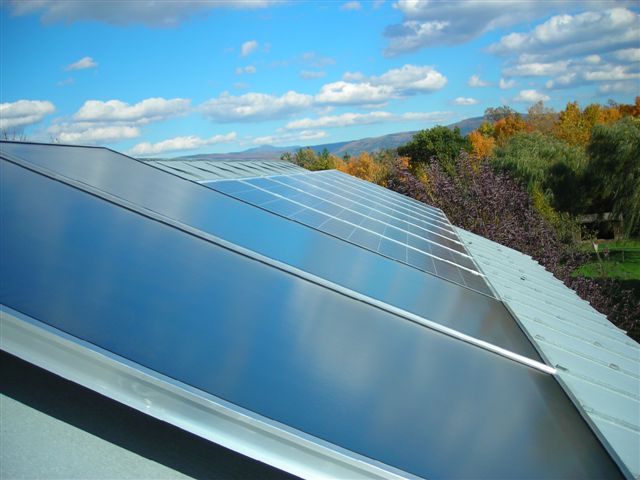Letter to the Editor: Looking at Solar Power
Reprinted from The Addison Eagle
Nov. 3, 2014 3:05 PM
Dylan Zwicky of Burlington is a Clean Energy Associate for the Vermont Public Interest Research Group.
Last month 400,000 people gathered on the streets of New York City to call for action on global warming from world leaders, and it’s no surprise that Vermonters turned out in force. Climate change is already hitting home here in Vermont. Tropical Storm Irene significantly damaged or destroyed the homes of nearly 1,500 Vermont families, and cost the state nearly three-quarters of a billion dollars. Extreme storms now occur nearly twice as frequently in Vermont as they did in the middle of the last century, and are more severe. Recent research shows that trend only getting worse.
We owe it to our kids to protect them from this increasingly destructive weather, and that means doing what we can to address global warming before it’s too late. To cut our carbon pollution, Vermont has set a goal of getting 90 percent of its total energy – heating, transportation, and electricity – from clean, renewable sources by 2050. Until now, Vermonters have mostly gotten our power from sources that were out of sight and out of mind. Now that we’re starting to make progress towards that goal, we’re seeing clean energy built in every corner of the state. For some, that has caused concern.
Electricity – especially clean electricity – is a statewide public good, and we should treat it as such. When a Vermonter flicks a light switch, they know their lights will turn on. After all, we live in a developed country. The power generation, transmission and distribution infrastructure that makes that possible extends beyond the borders of any single town or county. Decisions about this system – which benefits the state as a whole and everyone in it – need to be made by an entity that has a perspective broader than any one town or regional planning commission could.
That, ultimately, is why the Public Service Board reviews energy projects. If a new power line to your town was needed to ensure you and your neighbors continued to have reliable electricity, you wouldn’t want another town to be able to stop that project.
None of that is to say we shouldn’t have a conversation about ways to improve the siting and permitting process. That conversation, though, has to be grounded in the facts. Towns depend on statewide energy infrastructure for power generation, transmission, and distribution, and we need to achieve our clean energy goals to address global warming.
That’s why I was disappointed to see terms like “solar invasion”, “D-Day”, and “ground zero” used by the Eagle in last week’s “New Haven selectman says town is being cut out of solar-power process,” in addition to two significant factual errors. Our newspapers should be setting an example by looking at issues objectively, not using hyperbole evoking WWII. That kind of rhetoric is counter-productive to civil discourse and isn’t going to result in a more participatory process. I hope the Eagle will approach this issue more productively in the future.

